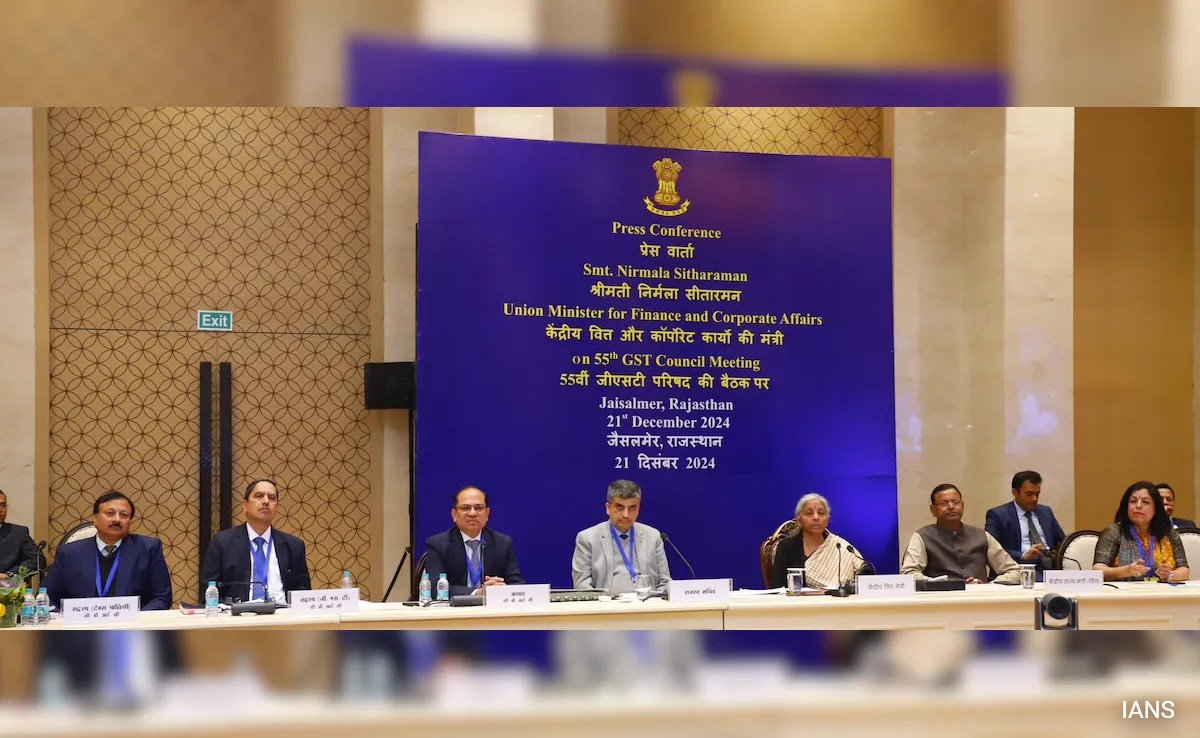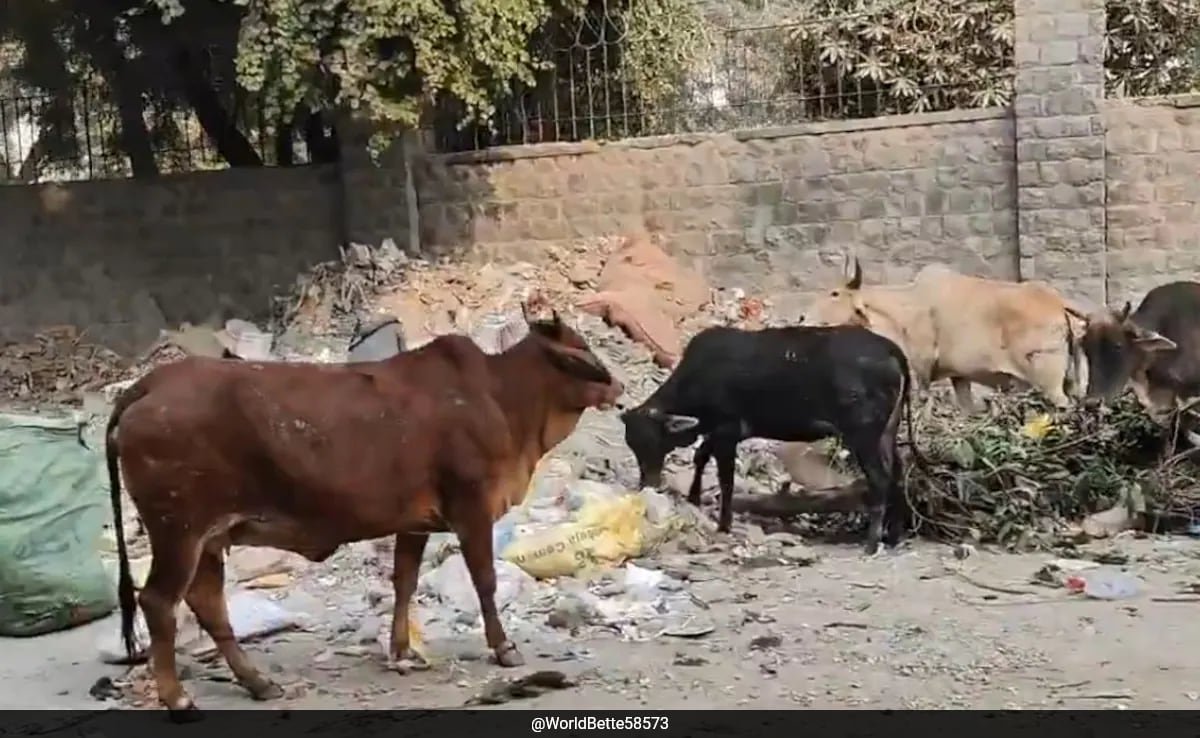Explained: Key Recommendations Of 55th GST Council Meet

From reducing GST rate on fortified rice kernel (FRK) to fully exempt GST on gene therapy, the 55th GST Council meeting, chaired by Union Finance Minister Nirmala Sitharaman, on Saturday made some key recommendations to provide relief to individuals and businesses.
The Council recommended exemption of GST on contributions by general insurance companies from third-party motor vehicle premiums for Motor Vehicle Accident Fund.
It also recommended no GST on transaction of vouchers as they are neither supply of goods nor supply of services. The provisions related to vouchers is also being simplified.
GST Council clarified that no GST is payable on ‘penal charges’ levied and collected by banks and NBFCs from borrowers for non-compliance with loan terms
The Council recommended reduction of payment of pre-deposit for filing an appeal before the Appellate Authority in respect of an order passed which involves only penalty amount.
It recommended reduction in GST rate on fortified rice kernel (FRK), classifiable under 1904, to 5 per cent, as the commodity is supplied to the weaker sections of society through the public distribution system (PDS).
Under goods category, the meeting decided to extend IGST exemption to systems, sub-systems, equipment, parts, sub-parts, tools, test equipment, software meant assembly/manufacture of LRSAM system.
It also recommended to reduce the rate of Compensation Cess to 0.1 per cent on supplies to merchant exporters at par with GST rate on such supplies and exempt from IGST imports of all equipment and consumable samples by Inspection Team of the International Atomic Energy Agency (IAEA) subject to specified conditions.
The GST members also recommended to extend the concessional 5 per cent GST rate on food inputs of food preparations under “HSN 19 or 21” that are supplied for food preparations intended for free distribution to economically weaker sections under a government program subject to the existing conditions.
Under the Services category, the GST Council recommended to bring supply of the sponsorship services provided by the body corporates under Forward Charge Mechanism and exempt GST on the contributions made by general insurance companies from the third-party motor vehicle premiums collected by them to the Motor Vehicle Accident Fund, constituted under section 164B of the Motor Vehicles Act, 1988.
This fund is constituted for providing compensation/ cashless treatment to the victims of road accidents including hit and run cases.
It recommended to increase the GST rate from 12 per cent to 18 per cent on sale of all old and used vehicles, including EVs other than those specified at 18 per cent like sale of old and used petrol vehicles of engine capacity of 1200 cc or more and of length of 4000 mm or more; diesel vehicles of engine capacity of 1500 cc or more and of length of 4000 mm and SUVs.
The Council also clarified that Autoclaved Aerated Concrete (ACC) blocks containing more than 50 per cent fly ash content will fall under HS 6815 and attract 12 per cent GST.
It further clarified that pepper, whether fresh green or dried pepper and raisins when supplied by an agriculturist, is not liable to GST.
It also clarified that ready-to-eat popcorn which is mixed with salt and spices are classifiable attracts 5 per cent GST, if supplied as other than pre-packaged and labelled, and 12 per cent GST if supplied as pre-packaged and labelled.
However, when popcorn is mixed with sugar thereby changing its character to sugar confectionary (eg caramel popcorn), it would attract 18 per cent GST.
The Council has approved an amendment to the definition of prepackaged and labelled items intended for retail sale. The step is aimed at clarifying the definition for all goods as currently there is a lot of confusion on the issue.
The GST Council meeting was attended by Union Minister of State for Finance, Pankaj Chaudhary, along with Chief Ministers of Goa, Haryana, Jammu and Kashmir, Meghalaya, and Odisha, as well as Deputy Chief Ministers from Arunachal Pradesh, Bihar, Madhya Pradesh, Rajasthan, and Telangana. Senior officials from the Finance Ministry, including those from the Economic Affairs and Expenditure Departments, were also present.



